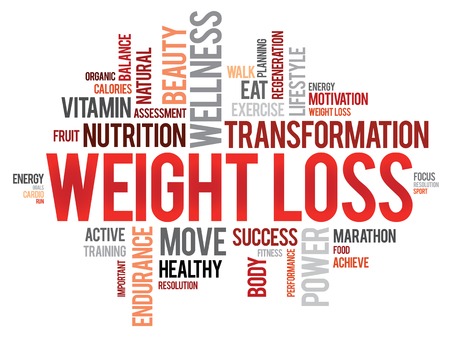The Whoosh Effect

Have you ever noticed that when you diet , and I mean diet perfectly, the weight drops off nice and steady to begin with and then it stalls and slows down. It becomes inconsistent despite you hammering every day at your diet. You can be absolutely perfect in your food prep, planning and consumption, absolutely nailing the diet, but the scales don’t move.
Then one morning completely out of the blue (quite often after a day where you didn’t diet as well as you should, suddenly there’s a big drop on the scales and you are left thinking “how on earth has that happened?”. I diet like a trooper, nothing moves, then I have a day where I don’t diet properly and THEN I lose weight! You’re having a laugh!
.
Some weeks, you’ll find that you don’t lose any weight at all — even when you’ve trained and eaten perfectly. Other weeks you’ll find that you lost much more weight than the calories and maths say you could have
Why, if you eat the exact same calories day in day out, in a calorie deficit (so you are eating less than your body needs, meaning it has to burn fat for fuel) does your weight not drop by exactly the same amount each and every day/week/month?

.
THE WHOOSH EFFECT is to blame!
As you burn fat you may notice that sometimes certain areas of your body go ‘squishy’ or softer. This happens because as the fat cells release their energy (the fat) they fill up with water, meaning they are much softer and more ‘squishy’ or softer. This can happen in areas you can see and feel or more internally, around organs, where it is not noticeable.
These areas can last for a few days or a few weeks and then, one day, out of nowhere, all that squishy fat suddenly flattens out, you’ll even (suddenly) look leaner and you ‘feel’ slimmer! At the same time, the scale suddenly drops — and you are left confused as to why all of a sudden your body has started responding to the diet.
It is perfectly possible that the movement you saw on the scales last time you weighed is actually as a result of fat you burned several days or even weeks ago!
In other words, even though you may be dieting perfectly, day in day out, the results of that dieting may not show up for several days or even weeks, and when they do show up it may be in a large unexpected drop.
.

THE MINNESOTA STARVATION EXPERIMENT
During World War 2 an experiment was conducted on 36 men to determine the effects of a semi-starvation diet. They were fed 1500 calories per day and did several hours of hard labour. The purpose was to learn about the physiology and psychology effects on POW’s returning from the war.
The interesting thing is that in the beginning the weight loss on the scales was nice and linear and consistent, all the men regularly lost each week but after a few weeks it became erratic and not consistent. In some cases the weight did not move at all for several weeks despite the calories and labour efforts being strictly controlled.
Then randomly, overnight, there would be sudden drops in the mens weight, seemingly with no reason and completely unexplainable. After much research they established that the reason was water retention.
So this is what was happening:
The calorie deficit did its job by systematically reducing body fat, but the reductions in total body weight were often counter-balanced by increases in water retention.

CAN YOU STOP THIS HAPPENING?
Short answer: No, and you really don’t need to either. It’s your body’s normal method of coping with fat-loss. Just let it do its thing.
Long answer: Scientists in the above study actually found that a single meal that included a dramatic increase in caloric intake caused a spike in weight loss. For instance, a 2,300-calorie meal was served to celebrate the half-way mark of the experiment, and researchers noted that many of the men woke up several times to pee that night and, in the morning, were several pounds lighter than the day before.
So a small cheat meal triggered a ‘whoosh’ effect where the body released loads of it’s stored water and subsequently showed a large drop on the scales. This of course will only work if you have already NOT been cheating on your diet! That part is IMPORTANT!!!!
CONCLUSION
A weight-loss plateau doesn’t necessarily equate to a fat-loss plateau!! Just because the scale isn’t moving, doesn’t mean you’re not burning fat, and it doesn’t mean you’re doing anything wrong (only you know in your heart if that is true)
Second, and probably more importantly, don’t expect results every single morning when you weigh-in. While it CAN work this way (and often does early on), it’s not typical. You might find that weighing-in once a week or monthly is a better strategy if you find yourself dealing with this problem.
